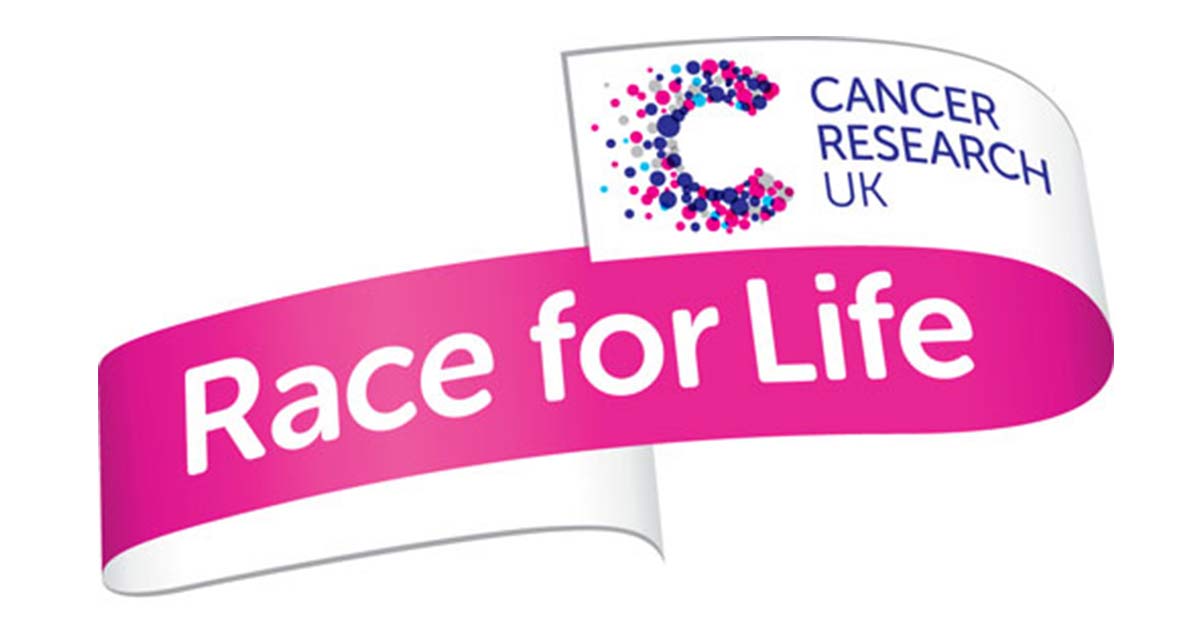Superior service and solutions

Did you know that bullying can be classed as harassment – which carries a criminal penalty of up to six months in prison?
Although there is no precise legal definition, conduct under the Protection from Harassment Act 1997 states that harassment is defined as alarming a person or causing a person distress.
Before you assume that sounds pretty harmless, harassment is a criminal offence.
Not only does it cover actions, the Act
also includes speech – so harassment may take place by the use of words.
To be guilty of the offence the victim must on at least two occasions have suffered alarm or distress.
Sending an intimidating email for example, followed up by a menacing phone call may constitute harassment.
In fact, many types of bullying can amount to harassment.
Michael Labrum, Senior Partner at Labrums Solicitors, said: “One of the most worrying places we are seeing a spike in the number of cases is on social media. Cyberbullying allows the bully to feel more comfortable saying hurtful, intimidating and cruel comments when posting online.
“But for the victims, there is no escape. The comments are seen by more people, and can cause an incredible amount of stress and anxiety. In some cases young people have taken their own life due to what has been said by the trolls.”
Last week popstar Jessie J berated loyal fans who were being rude, abusive and hurtful to each other.
In an open letter she wrote: “Social media has changed the world a lot. And with everything that is happening in the world, anything we can do to action nicer behaviour and better understanding instead of being selfish and mean is what we should be doing.”
However, unattractive and unreasonable conduct does not of itself amount to harassment; the conduct must be oppressive or unacceptable to give rise to a criminal liability.
To determine if someone is guilty of harassment, a person ought to know that their conduct amounts to harassment of another.
In fact, if a reasonable person in possession of the same set of facts was to think that another person’s course of conduct amounted to harassment then indeed it is a case of harassment.
Stalking is yet another type of harassment, which we associate with Hollywood movies – but for many of us it’s become part of our real lives.
Being stalked leaves victims feeling emotionally traumatised, psychologically anxious and scared.
In some cases, victims of stalking are forced to leave their jobs, change their phone numbers and relocate homes in order to regain a ’normal’ life.
The Serious Organized Crime and Police Act 2005 has been amended to create a new offence which states specifically the types of conduct that are deemed to be unacceptable.
Under this offence a criminal liability can result if the accused on at least one occasion caused the victims to suffer alarm or distress, and it can now be used by families or businesses (within reason) to protect themselves from unwanted attention.
Each case will be determined on its own set of facts.
If you think you have been a victim of harassment, you can also make a claim in civil proceedings:
- You can take out an injunction – which usually consists of an order preventing the accused from coming near the victim’s home or work.
- You can claim damages, which may be awarded for (amongst other things) any anxiety caused by the harassment and any financial loss resulting from the harassment.
If you need help, call us on 01727 858807
















เกมส์อีเว้นท์
November 19, 2024... [Trackback] [...] Info to that Topic: labrums.co.uk/blog/unwanted-attention [...]
入金不要ボーナス
November 27, 2024... [Trackback] [...] Find More Info here on that Topic: labrums.co.uk/blog/unwanted-attention [...]
north disposable vape how to unclog disposable thc vape
December 17, 2024... [Trackback] [...] Read More Info here on that Topic: labrums.co.uk/blog/unwanted-attention [...]
เกมไพ่ดัมมี่
December 21, 2024... [Trackback] [...] There you will find 81857 more Info on that Topic: labrums.co.uk/blog/unwanted-attention [...]
dultogel
December 29, 2024... [Trackback] [...] There you will find 17564 additional Info to that Topic: labrums.co.uk/blog/unwanted-attention [...]
ข้อดี ของการ ทดลองเล่นสล็อต
January 4, 2025... [Trackback] [...] Info to that Topic: labrums.co.uk/blog/unwanted-attention [...]
การ์ดแต่งงาน
January 28, 2025... [Trackback] [...] Read More Info here on that Topic: labrums.co.uk/blog/unwanted-attention [...]
pakong188
January 30, 2025... [Trackback] [...] Info on that Topic: labrums.co.uk/blog/unwanted-attention [...]
เช่ารถตู้พร้อมคนขับ
February 15, 2025... [Trackback] [...] There you will find 22746 more Info on that Topic: labrums.co.uk/blog/unwanted-attention [...]
Go to page
February 18, 2025... [Trackback] [...] Info on that Topic: labrums.co.uk/blog/unwanted-attention [...]
read more
February 21, 2025... [Trackback] [...] Read More Info here to that Topic: labrums.co.uk/blog/unwanted-attention [...]
รถมือสอง
February 22, 2025... [Trackback] [...] Here you will find 339 more Information to that Topic: labrums.co.uk/blog/unwanted-attention [...]
Mclaren
February 27, 2025... [Trackback] [...] Read More to that Topic: labrums.co.uk/blog/unwanted-attention [...]
Al Yarmouk University College
February 28, 2025... [Trackback] [...] There you will find 98411 additional Info on that Topic: labrums.co.uk/blog/unwanted-attention [...]
lottorich28
March 13, 2025... [Trackback] [...] Read More on that Topic: labrums.co.uk/blog/unwanted-attention [...]
ricky casino
March 20, 2025... [Trackback] [...] Info on that Topic: labrums.co.uk/blog/unwanted-attention [...]
Freshbet
March 26, 2025... [Trackback] [...] Read More Info here on that Topic: labrums.co.uk/blog/unwanted-attention [...]
Подробнее
March 27, 2025... [Trackback] [...] Here you will find 57927 more Info on that Topic: labrums.co.uk/blog/unwanted-attention [...]
บาคาร่า All รวมค่ายบาคาร่าลิขสิทธิ์แท้
March 29, 2025... [Trackback] [...] Information to that Topic: labrums.co.uk/blog/unwanted-attention [...]
pg168
April 3, 2025... [Trackback] [...] Read More to that Topic: labrums.co.uk/blog/unwanted-attention [...]
อัตราการจ่ายเงินของหวยออนไลน์ CEO88BET
April 9, 2025... [Trackback] [...] Here you will find 50236 additional Information on that Topic: labrums.co.uk/blog/unwanted-attention [...]
cobra918
April 22, 2025... [Trackback] [...] Find More to that Topic: labrums.co.uk/blog/unwanted-attention [...]
สล็อตทดลองเล่นฟรี pg
April 26, 2025... [Trackback] [...] Find More Info here on that Topic: labrums.co.uk/blog/unwanted-attention [...]
Sweettooth
May 5, 2025... [Trackback] [...] Info on that Topic: labrums.co.uk/blog/unwanted-attention [...]
เว็บตรงฝากถอนง่าย
May 8, 2025... [Trackback] [...] Find More on that Topic: labrums.co.uk/blog/unwanted-attention [...]
girls outcall massage Bangkok
May 8, 2025... [Trackback] [...] Info to that Topic: labrums.co.uk/blog/unwanted-attention [...]
Greentube developer
May 9, 2025... [Trackback] [...] Info on that Topic: labrums.co.uk/blog/unwanted-attention [...]
Rare Breed trigger
May 11, 2025... [Trackback] [...] Find More here to that Topic: labrums.co.uk/blog/unwanted-attention [...]
Slotxo24hr พันธมิตรค่ายระดับตำนาน
May 16, 2025... [Trackback] [...] Info to that Topic: labrums.co.uk/blog/unwanted-attention [...]
ufabet789
May 19, 2025... [Trackback] [...] Find More Information here on that Topic: labrums.co.uk/blog/unwanted-attention [...]
โคมไฟ
May 21, 2025... [Trackback] [...] Find More Information here on that Topic: labrums.co.uk/blog/unwanted-attention [...]
LSM99
June 5, 2025... [Trackback] [...] Find More Information here on that Topic: labrums.co.uk/blog/unwanted-attention [...]
นำเข้ามอเตอร์ โบลเวอร์
June 17, 2025... [Trackback] [...] Here you can find 24251 more Information to that Topic: labrums.co.uk/blog/unwanted-attention [...]
7slots
June 18, 2025... [Trackback] [...] Information to that Topic: labrums.co.uk/blog/unwanted-attention [...]
Pinco yukle
June 21, 2025... [Trackback] [...] Find More here on that Topic: labrums.co.uk/blog/unwanted-attention [...]
แทงหวย
June 22, 2025... [Trackback] [...] Read More on that Topic: labrums.co.uk/blog/unwanted-attention [...]
1xslot casino
July 1, 2025... [Trackback] [...] There you will find 24411 more Information on that Topic: labrums.co.uk/blog/unwanted-attention [...]
bookofra.uk/
July 2, 2025... [Trackback] [...] Read More on that Topic: labrums.co.uk/blog/unwanted-attention [...]
พลาสติกปูพื้นก่อนเทคอนกรีต
July 8, 2025... [Trackback] [...] Info on that Topic: labrums.co.uk/blog/unwanted-attention [...]
Dark 168 wallet
July 9, 2025... [Trackback] [...] Find More Information here on that Topic: labrums.co.uk/blog/unwanted-attention [...]
เกมแตกง่ายที่ เป๋าตัง168
July 12, 2025... [Trackback] [...] Info to that Topic: labrums.co.uk/blog/unwanted-attention [...]
ทรรศนะบอล
July 26, 2025... [Trackback] [...] Read More Information here on that Topic: labrums.co.uk/blog/unwanted-attention [...]
ข้าวหมาก
August 1, 2025... [Trackback] [...] Find More to that Topic: labrums.co.uk/blog/unwanted-attention [...]
Mulch film
August 2, 2025... [Trackback] [...] Here you can find 61314 more Info on that Topic: labrums.co.uk/blog/unwanted-attention [...]
BRAZIL999 คืออะไร ดีไหม
August 3, 2025... [Trackback] [...] Here you can find 46419 more Information to that Topic: labrums.co.uk/blog/unwanted-attention [...]
Apple gift card
August 9, 2025... [Trackback] [...] Here you can find 44001 additional Info on that Topic: labrums.co.uk/blog/unwanted-attention [...]
โบลเวอร์ kruger
August 16, 2025... [Trackback] [...] Information on that Topic: labrums.co.uk/blog/unwanted-attention [...]
sweet bonanza oynamak
August 20, 2025... [Trackback] [...] Read More on that Topic: labrums.co.uk/blog/unwanted-attention [...]
th39
August 25, 2025... [Trackback] [...] Info on that Topic: labrums.co.uk/blog/unwanted-attention [...]
พูลวิลล่านครนายก
September 2, 2025... [Trackback] [...] Read More here to that Topic: labrums.co.uk/blog/unwanted-attention [...]
ร้านเค้กวันเกิดใกล้ฉัน
September 26, 2025... [Trackback] [...] There you can find 67820 more Info on that Topic: labrums.co.uk/blog/unwanted-attention [...]
Best Tailor in Bangkok
October 1, 2025... [Trackback] [...] Here you can find 22399 additional Info to that Topic: labrums.co.uk/blog/unwanted-attention [...]
ดูหนังออนไลน์ฟรี
October 9, 2025... [Trackback] [...] Find More Info here on that Topic: labrums.co.uk/blog/unwanted-attention [...]
ufa118
October 9, 2025... [Trackback] [...] Read More here on that Topic: labrums.co.uk/blog/unwanted-attention [...]
roxcasinootzyvy.kz
October 10, 2025... [Trackback] [...] Read More Information here on that Topic: labrums.co.uk/blog/unwanted-attention [...]
สิว
October 24, 2025... [Trackback] [...] Here you can find 11408 more Information to that Topic: labrums.co.uk/blog/unwanted-attention [...]
ศูนย์ดูแลผู้สูงอายุ
October 29, 2025... [Trackback] [...] Find More on on that Topic: labrums.co.uk/blog/unwanted-attention [...]
OligioX
November 1, 2025... [Trackback] [...] Find More Information here on that Topic: labrums.co.uk/blog/unwanted-attention [...]
Jili
November 4, 2025... [Trackback] [...] Read More here to that Topic: labrums.co.uk/blog/unwanted-attention [...]
123bet
November 7, 2025... [Trackback] [...] There you will find 15372 additional Information on that Topic: labrums.co.uk/blog/unwanted-attention [...]
ดูหนังออนไลน์ฟรี
November 11, 2025... [Trackback] [...] There you can find 46846 additional Information to that Topic: labrums.co.uk/blog/unwanted-attention [...]
ตรายางออนไลน์
December 3, 2025... [Trackback] [...] Find More here to that Topic: labrums.co.uk/blog/unwanted-attention [...]
short filler cigars Canada
December 18, 2025... [Trackback] [...] Read More Information here to that Topic: labrums.co.uk/blog/unwanted-attention [...]